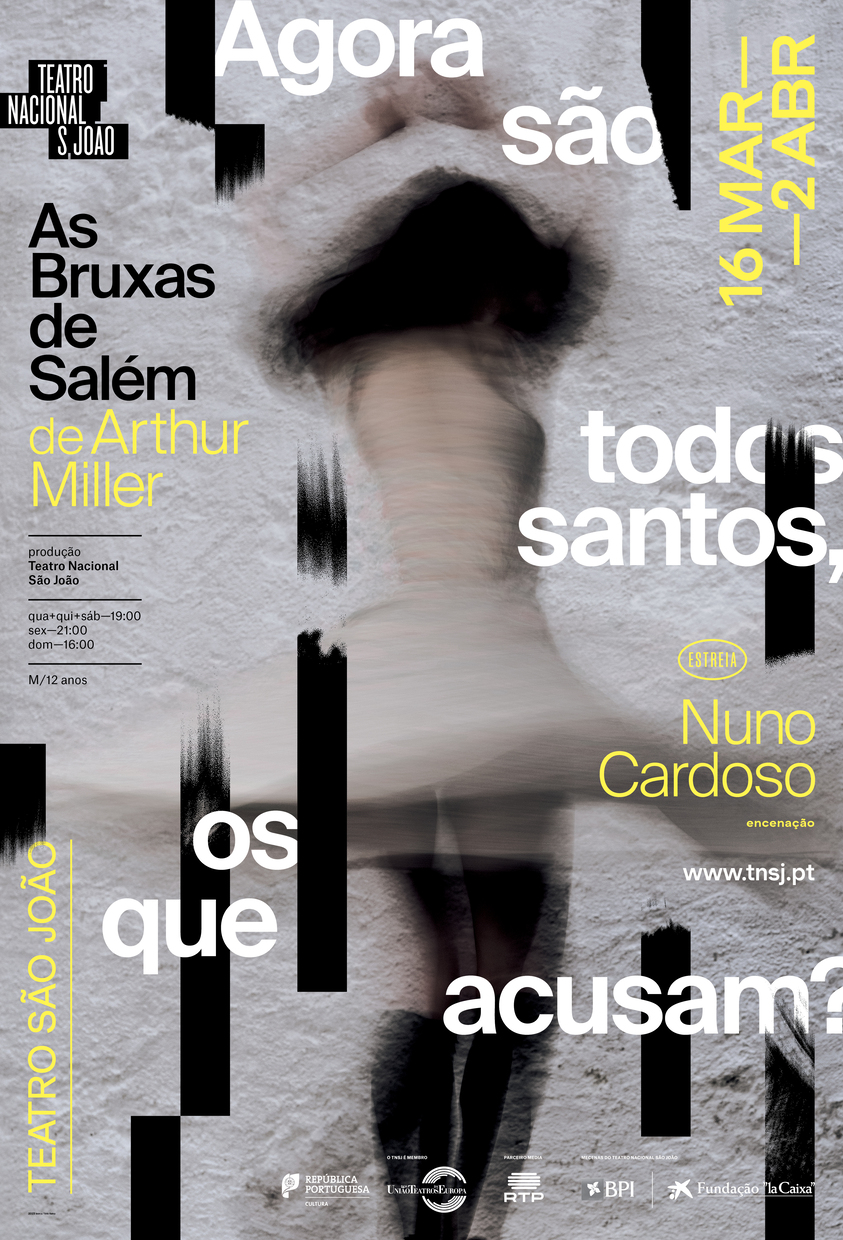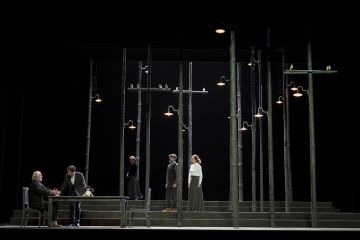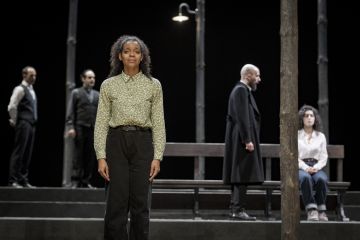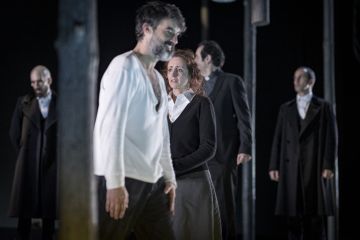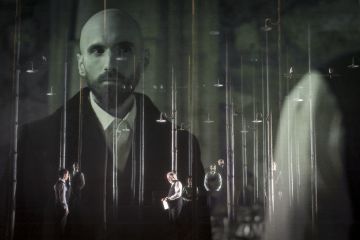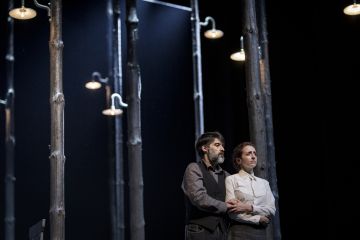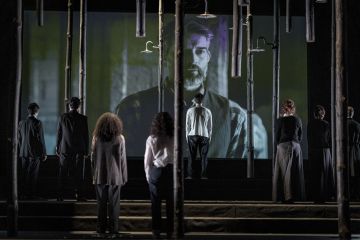The Crucible
Main stage
HU

RO

EN

12+

Carolina Amaral
Joana Carvalho
Jorge Mota
Lisa Reis
Mário Santos
Nuno Nunes
Paulo Freixinho
Patrícia Queirós
Pedro Frias Sérgio Sá Cunha
directed by
Nuno Cardoso
F. Ribeiro
Nuno Meira
Oliveira João
Luís Porto
Harrys Roldy
TNSJ
Pedro Nunes
“The Crucible was an act of desperation.” Thus the playwright Arthur Miller describes the genesis of this play, which is based on historical facts. In 1692, in the small American city of Salem, men and women are persecuted and put in trial for witchcraft. Rumours and lies are aflame, and no one seems safe from accusation or revenge. Premiered in 1953, The Crucible was conceived as an allegory of the darkness of McCarthyism, which corroded the heart of America. Miller was also a victim of that anti-communist fever. Out of its epicentre – a primeval fascination with paranoia, a collective rage that demands the sacrifice of individuals – multiple echoes resound today. With this play, Nuno Cardoso continues his inquiry into the foundations of community life, a new study of social man’s blindness. Miller again: “Below its concerns with justice the play evokes a lethal brew of illicit sexuality, fear of the supernatural, and political manipulation.”









